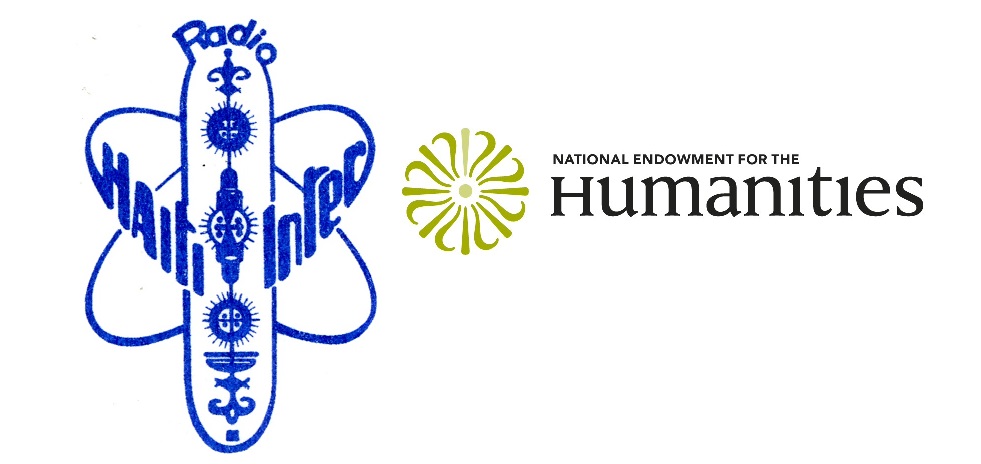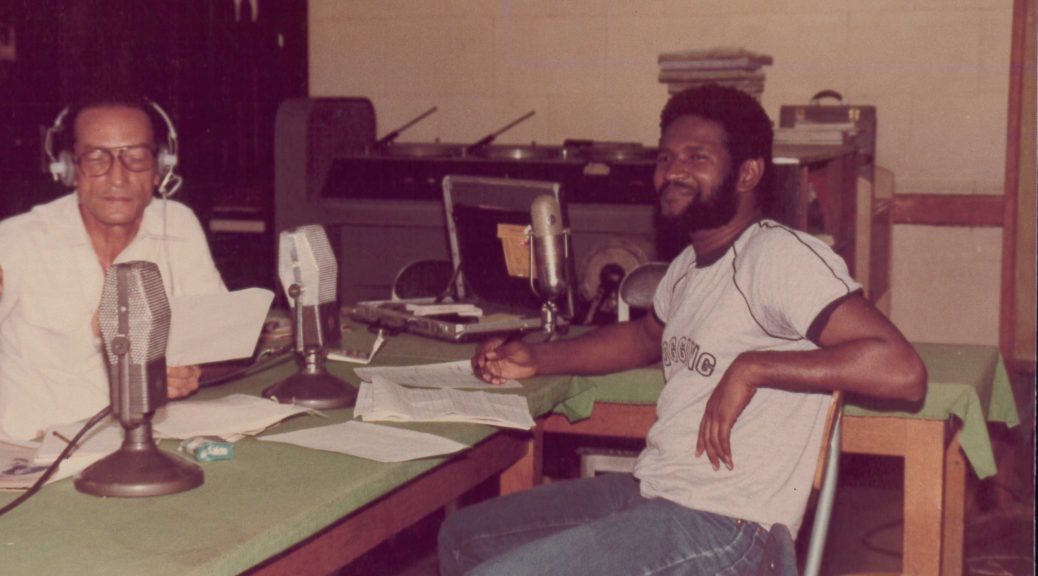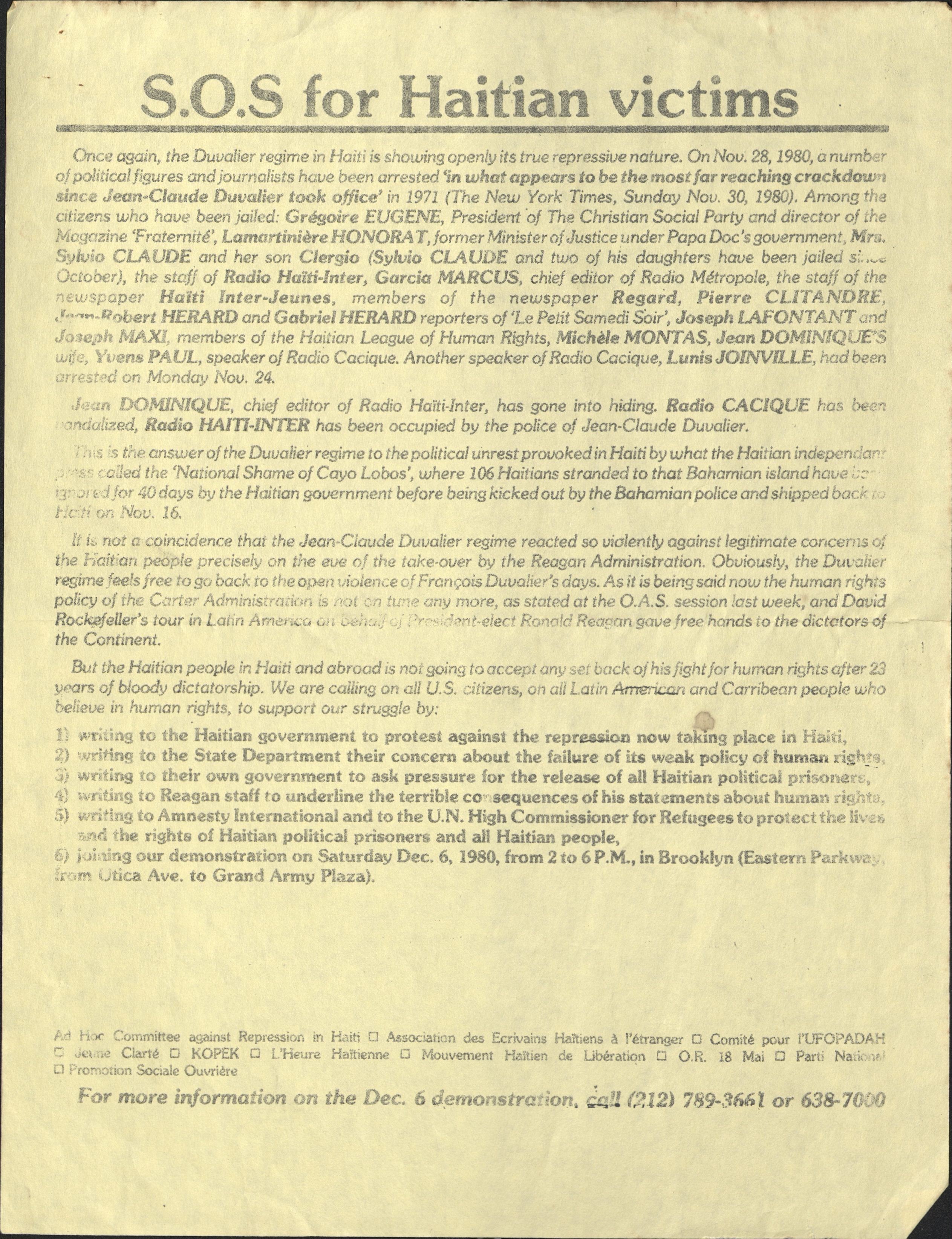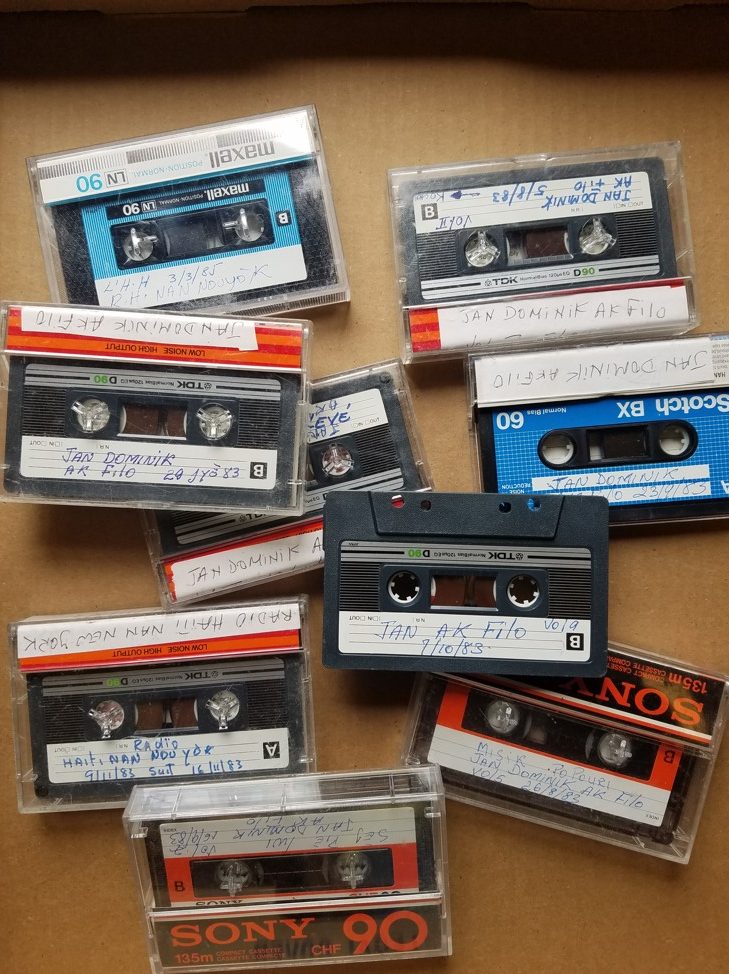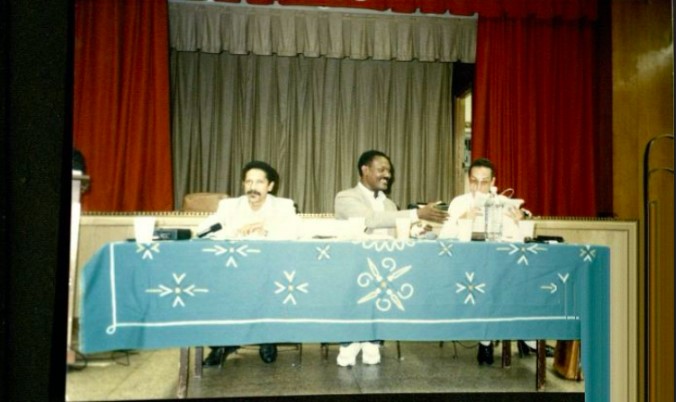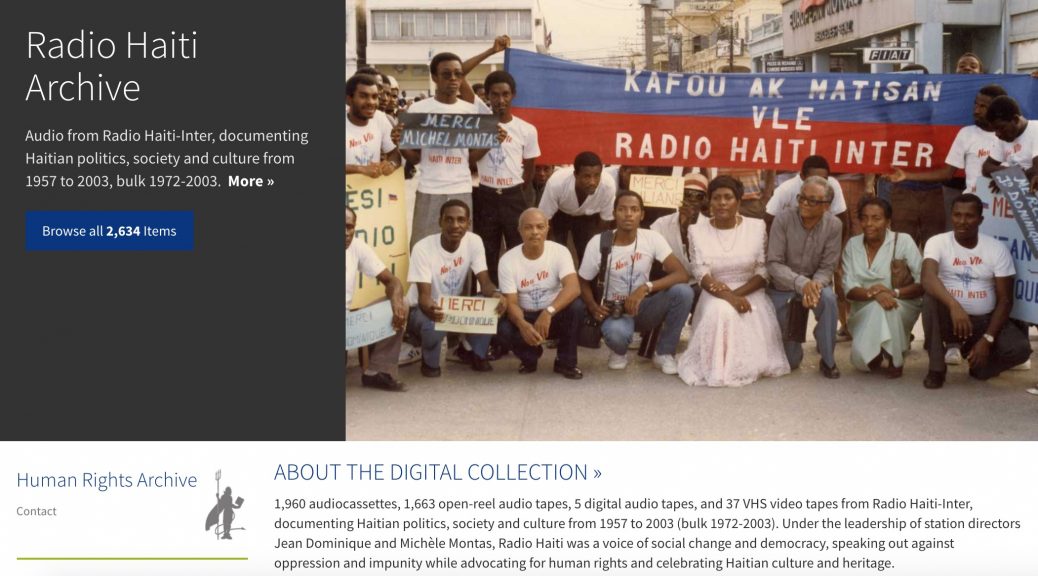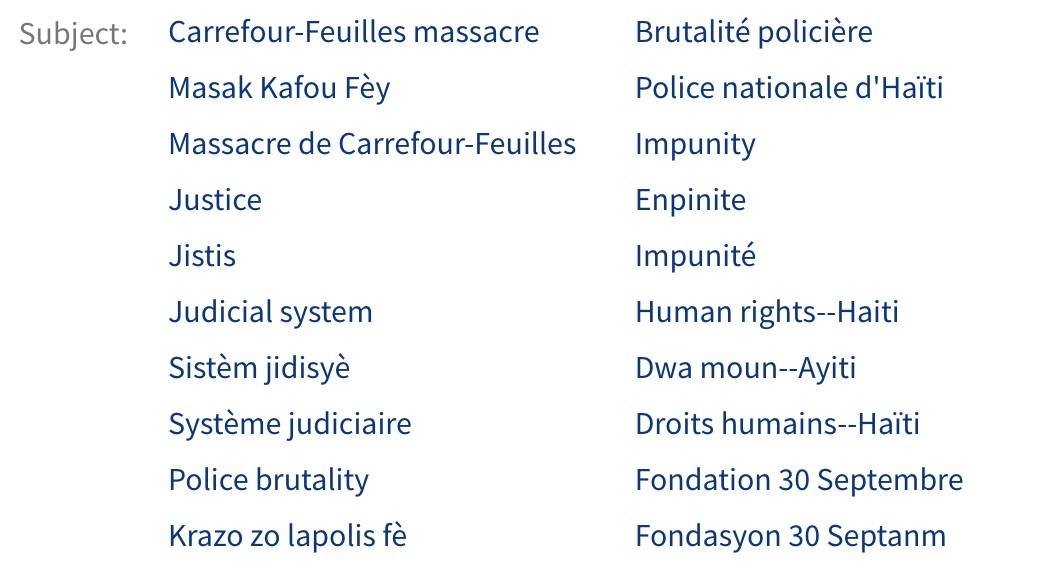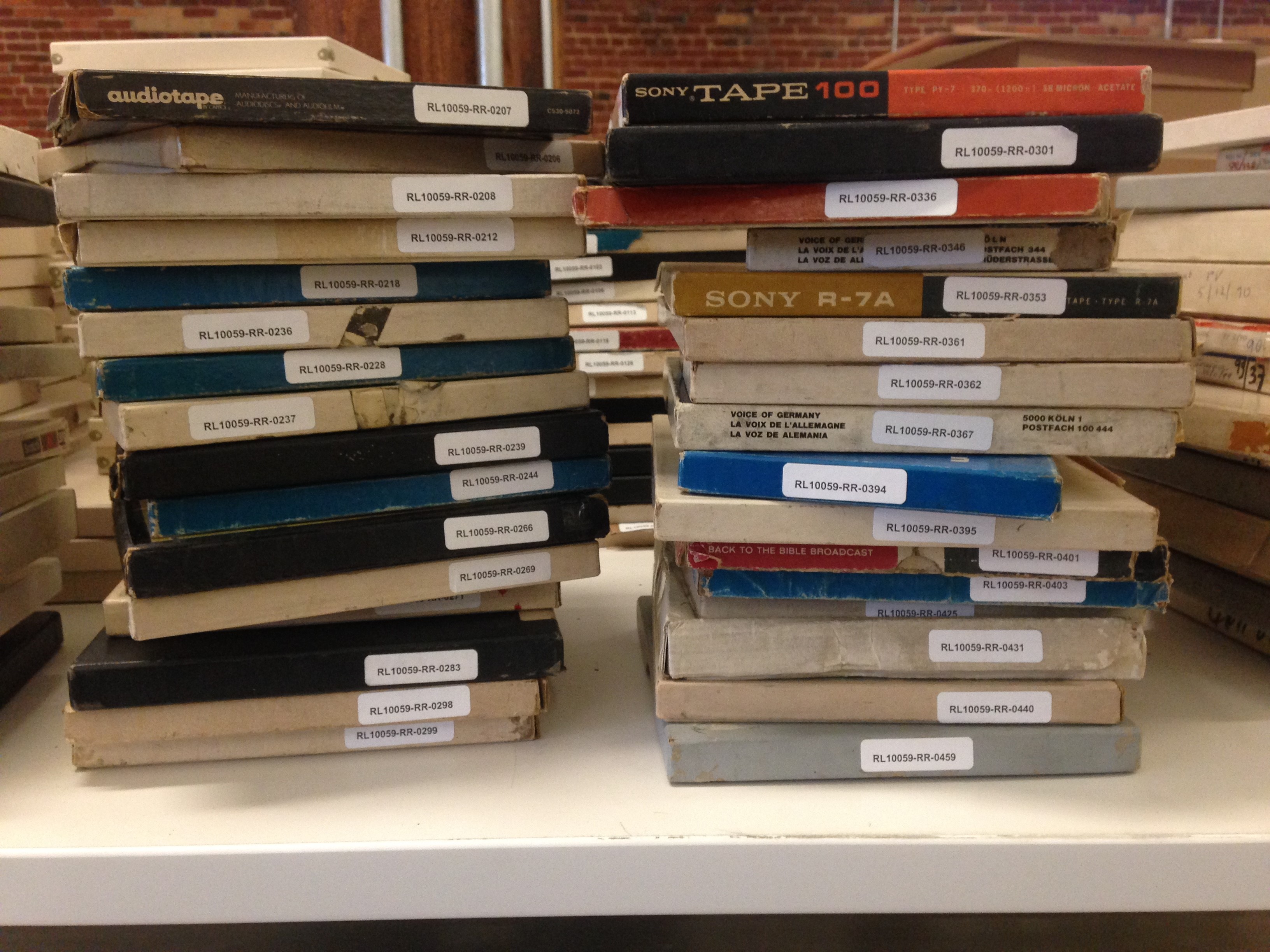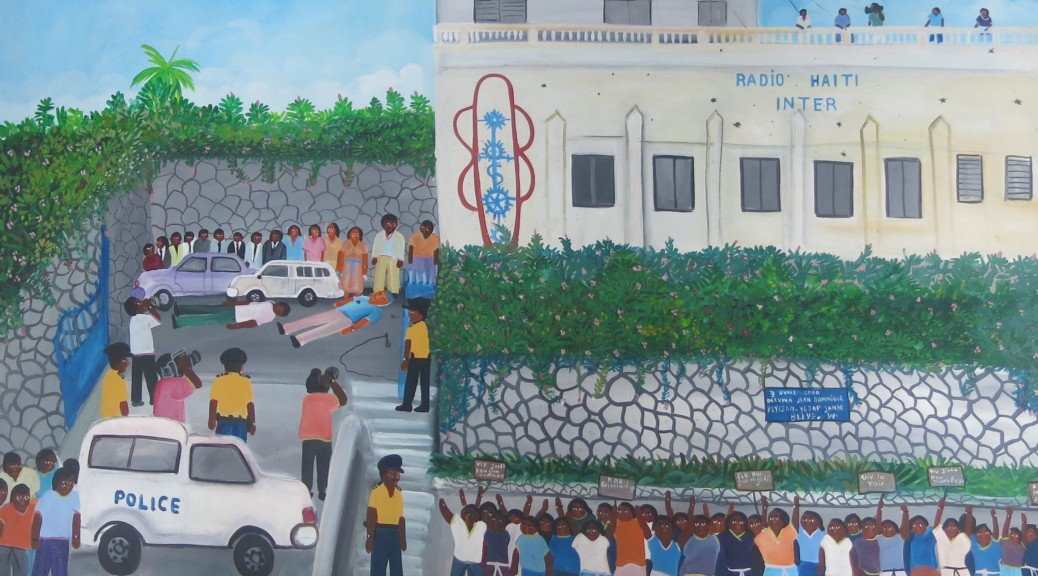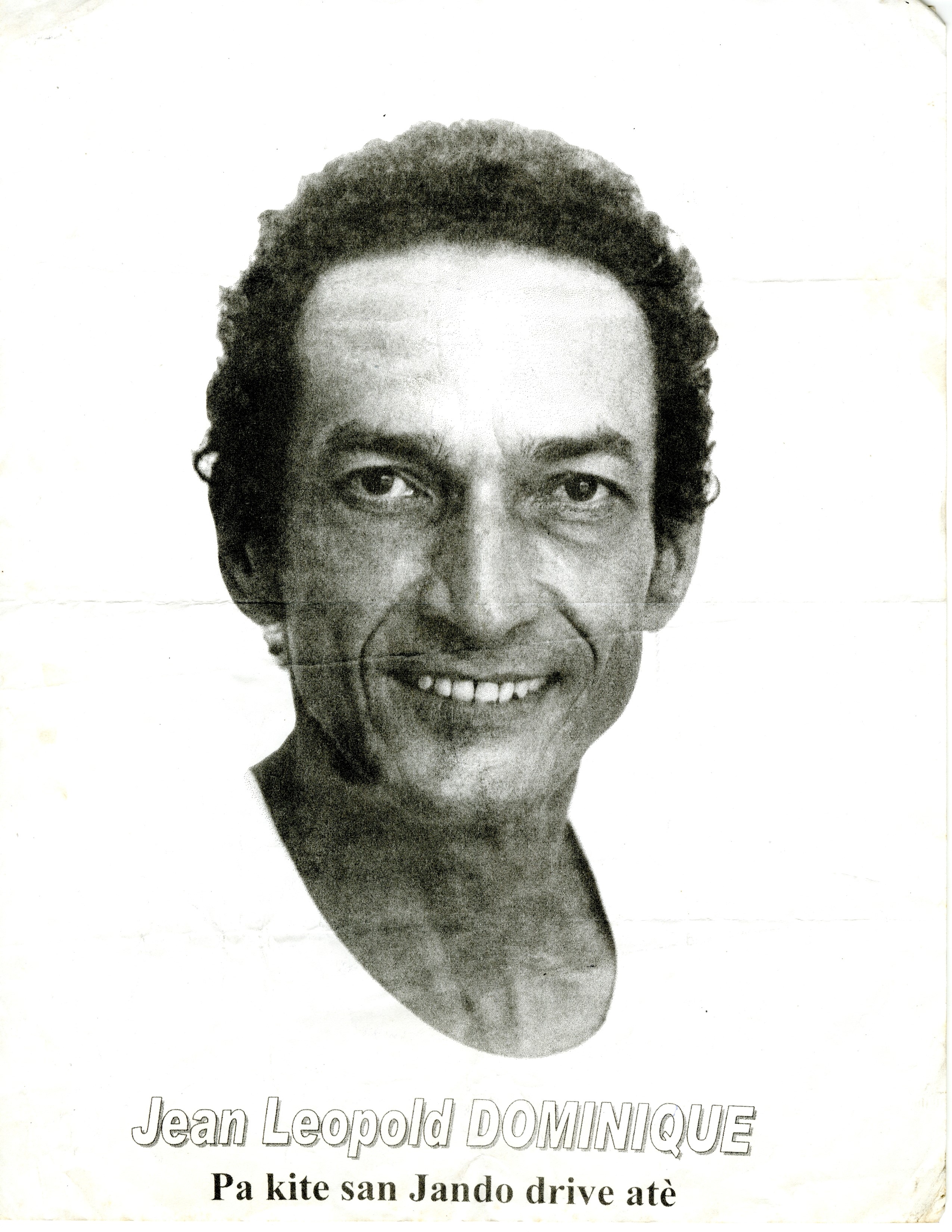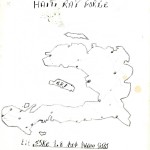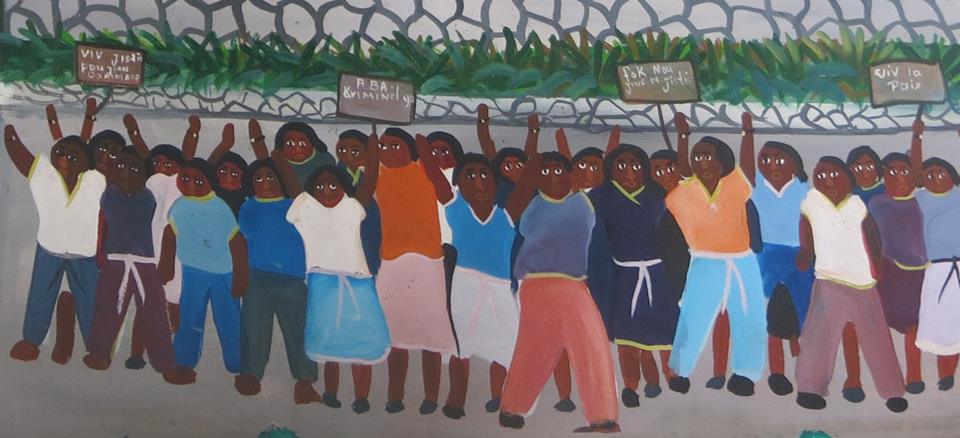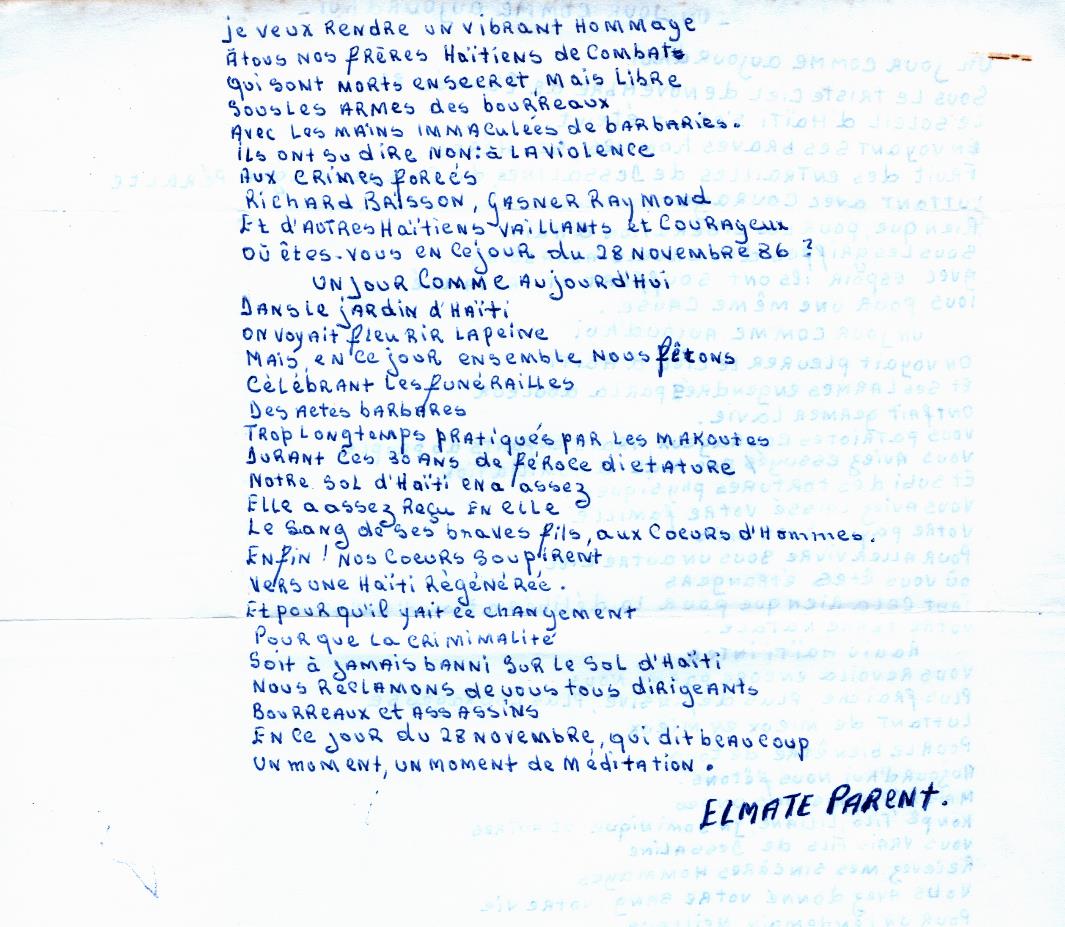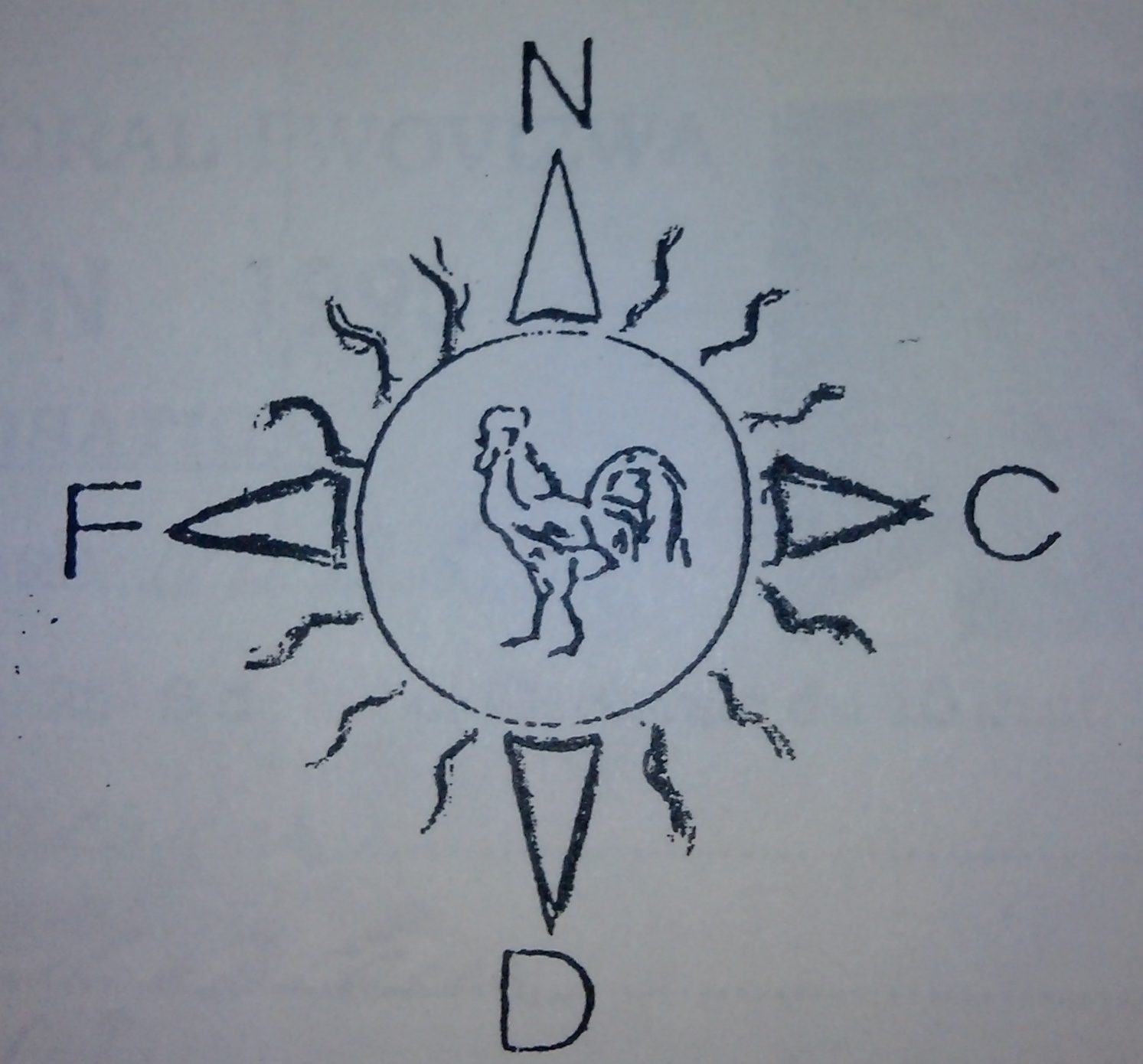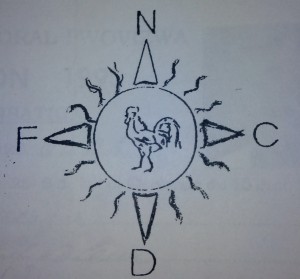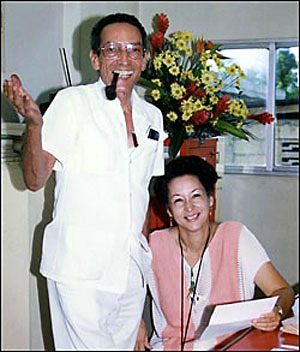Post contributed by Craig Breaden, Audiovisual Archivist
Radio Haiti on YouTube? Now there’s an idea…. When the Radio Haiti team at the Rubenstein Library embarked on a pilot project to see how the collection would perform on YouTube and the Internet Archive, we imagined it would be a fairly straightforward process, and that it was a natural fit. The idea for the pilot, funded as part of an NEH grant, came from discussions around how to effectively re-broadcast the archive. “Take the archive to its listeners,” was a rallying cry, “to Haitians in Haiti!” This approach captured the spirit of Radio Haiti, whose tireless advocacy for democracy in Haiti was brought to a halt only by assassinations and death threats carried out under an umbrella of impunity. With our pilot now complete, we are left with some expectations unfulfilled, some questions still unresolved. But even so, we learned a lot about the process, while enjoying one unqualified success.
If research libraries are square pegs, YouTube is the round hole. Librarians and archivists love metadata, YouTube loves “views.” Researchers and users love a good search tool, YouTube loves to put your eyes on ads. The differences between the missions of an ad-supported social media platform and a dot-EDU library have the potential to obscure the common goal of content delivery. We knew using YouTube, if not exactly a deal with a devil, demanded compromise and creative thinking. The first challenge was finding workflows that we could apply to the entire archive, including batch conversion of audio to video and bulk uploading of content and metadata. It was with the metadata where we started running into trouble. With paltry character limits on titles, descriptions, and keywords, YouTube left us scratching our head (when video is clearly the data hog, how does text get such short shrift?) and scrambling for a solution to provide adequate description for the recordings. The situation seemed especially acute because our Radio Haiti metadata is trilingual (English, Haitian Creole, French), and takes a lot of text space to accommodate our anticipated user populations. Ultimately we built in a default: every description that exceeded the 5000-character limit had an ellipsis added to the end along with a link to the Duke Digital Repository (DDR) page for that recording, so that, on YouTube, we still depended on the Library resource for full description.
View the YouTube pilot here: https://www.youtube.com/channel/UCLUqSmRQNALyrAMYxV44JOQ/videos
The Internet Archive, as its name might suggest, was far more accommodating, offering robust metadata fields without the ads or YouTube’s relentless “Up Next” pushiness. It has the spirit and ethic of our great public libraries, with a dedication to the public weal. Radio Haiti would be far from its first radio archive, and its mission, like any real archive’s, is long-term preservation. There were only two downsides to the Internet Archive platform, and the first one it shared with YouTube: There was no way to group related recordings (for example, multipart programs) via a relator metadata field in the upload spreadsheet. That work would have to be done “manually,” in the description field, which might not be a big deal if there were 100 or so recordings, but the Radio Haiti Archive has 5,308 audio files. Needless to say, the relationships between files that our DDR could make would not be replicated on these platforms. The second, more obvious downside, is that for all its virtues the Internet Archive just doesn’t have the audiences that YouTube, media titan, boasts.
View the Internet Archive Pilot here: https://archive.org/details/radiohaiti
And that one unqualified, and unexpected, success? Our team of developers, driven by this pilot project to compress the digital footprint of Duke Digital Repository pages, thus decreasing load times in areas with limited digital infrastructure, made successful modifications repository-wide to the DDR. Data transfer required for a first-time visit was cut to as much as one sixth of the original size, meaning users’ browsers could render the site much faster and, in Haiti, where mobile data transfer is limited by plans that are typically purchased daily, more cheaply. So, while allowing faster load times in Haiti for our re-broadcasting of the Radio Haiti Archive, they also made the DDR as a whole more efficient. For me, this is a great example of a specific need driving innovation. The Radio Haiti project improved the delivery of Duke University Libraries’ digital resources while also providing the opportunity for our team to see both the trees and the forest in our work.
The processing of the Radio Haiti Archive and the Radio Haiti Archive digital collection were made possible through grants from the National Endowment for the Humanities.



